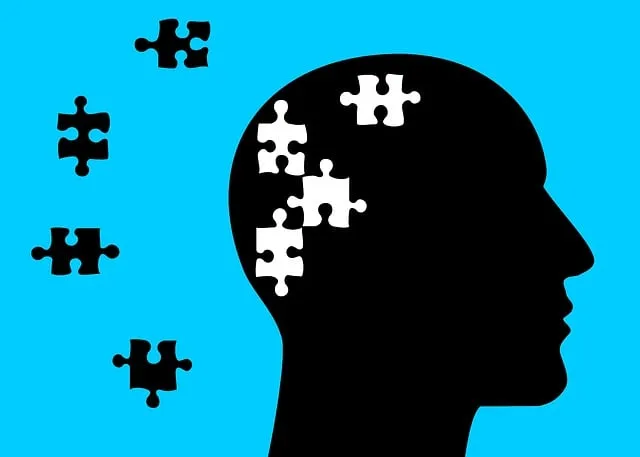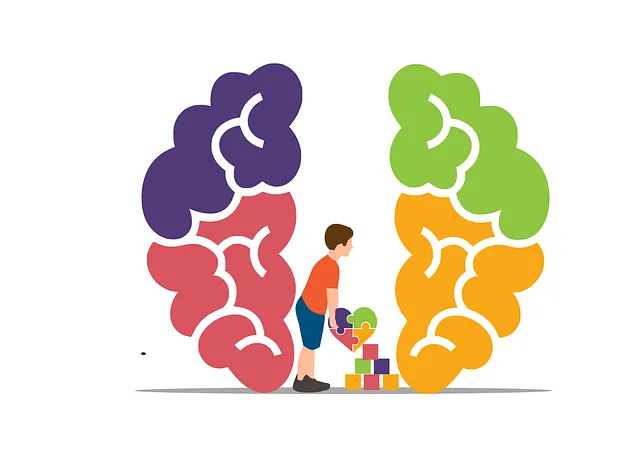The Highlands Ranch Kaiser mental health programs take a holistic approach to patient care, addressing the bidirectional relationship between social skills and mental health. By integrating social skills training with cultural competency education, community outreach, and podcast series, they enhance accessibility, inclusivity, and public understanding of emotional well-being. This comprehensive program equips individuals with communication and interaction tools, fostering empathy, active listening, and robust social skills. The result is improved coping strategies, stronger support networks, and increased emotional resilience, enabling patients to thrive in all aspects of life while receiving safe and effective care.
Social skills training is a powerful tool in managing mental health conditions, offering a holistic approach to patient care. This article explores the intricate link between social interactions and mental wellness, focusing on the innovative programs provided by Highlands Ranch Kaiser Mental Health. We’ll delve into key components of effective training, highlighting its real-world impact on patients’ lives through case studies and expert insights, all while shedding light on the transformative potential of such initiatives.
- Understanding the Connection Between Social Skills and Mental Health
- The Role of Highlands Ranch Kaiser Mental Health Programs in Training
- Key Components of Effective Social Skills Training for Diverse Conditions
- Implementation and Benefits: Real-World Impact on Patients' Lives
Understanding the Connection Between Social Skills and Mental Health

In many cases, mental health conditions can significantly impact an individual’s social abilities and overall well-being. The connection between social skills and mental health is a two-way street; lacking strong social connections can exacerbate existing mental health issues, while enhancing social skills can empower individuals to manage their conditions more effectively. This understanding highlights the importance of integrating social skills training into mental health programs, such as those offered by Highlands Ranch Kaiser.
By incorporating Healthcare Provider Cultural Competency Training and Community Outreach Program Implementation, mental wellness initiatives become more inclusive and accessible. The Mental Wellness Podcast Series Production can also play a crucial role in this process, as it educates the public about social skills development and its impact on mental health, fostering a supportive environment that encourages open conversations and promotes recovery.
The Role of Highlands Ranch Kaiser Mental Health Programs in Training

The Highlands Ranch Kaiser Mental Health Programs play a pivotal role in fostering social skills training, offering specialized services that cater to individuals navigating mental health challenges. These programs recognize the intricate link between social interactions and emotional well-being. Through their comprehensive approach, they empower clients with the tools necessary for effective communication, relationship building, and a sense of belonging—crucial components in the healing process.
Highlands Ranch Kaiser’s initiative extends beyond clinical settings through their Community Outreach Program Implementation, aiming to create supportive networks within local communities. This strategy facilitates the development of inner strength and promotes emotional healing processes by providing accessible resources and creating opportunities for social engagement. Their holistic methods ensure that individuals not only manage their mental health but also thrive in various aspects of life, including their personal and professional relationships.
Key Components of Effective Social Skills Training for Diverse Conditions

Social Skills Training is an essential component of comprehensive mental health care, tailored to meet diverse individual needs. At Highlands Ranch Kaiser mental health programs, we recognize that effective communication and social interaction are crucial for individuals navigating various conditions. Our approach focuses on several key components to ensure optimal results.
The training curriculum incorporates role-playing scenarios and group discussions to enhance empathy and active listening skills. We also emphasize cultural competency training, ensuring healthcare providers can offer sensitive support while considering the unique backgrounds of each client. Additionally, building confidence is a priority, as it empowers individuals to engage in social settings with greater ease. Through practical exercises and positive reinforcement, we guide clients towards developing robust social skills that contribute to their overall well-being and successful integration into various communities, be it at work or in their neighborhoods.
Implementation and Benefits: Real-World Impact on Patients' Lives

The implementation of social skills training within mental health programs, such as those offered by Highlands Ranch Kaiser, has proven to be a game-changer in patient care and outcomes. These structured interventions focus on enhancing communication, interaction, and relationship-building abilities, empowering individuals to navigate social environments with greater confidence. By combining evidence-based techniques from the Mental Wellness Podcast Series Production and Emotional Well-being Promotion Techniques, professionals can tailor these programs to diverse populations.
The real-world impact is significant; patients develop essential coping strategies, improve their support networks, and enhance overall emotional resilience. This not only boosts their mental wellness but also encourages a more active participation in their recovery journey. Moreover, risk assessment tools for mental health professionals, integrated into these training programs, ensure that support is provided safely and effectively, fostering an environment of trust and understanding.
Social skills training, as a component of holistic mental health care, has proven to be invaluable. The Highlands Ranch Kaiser Mental Health Programs have played a significant role in this regard, offering specialized training that caters to diverse conditions. By focusing on key components such as communication, empathy, and social interaction, these programs have achieved remarkable real-world impacts, enhancing patients’ lives and fostering better mental health outcomes. With continuous innovation and tailored approaches, social skills training is set to remain a game-changer in the field of mental healthcare.






